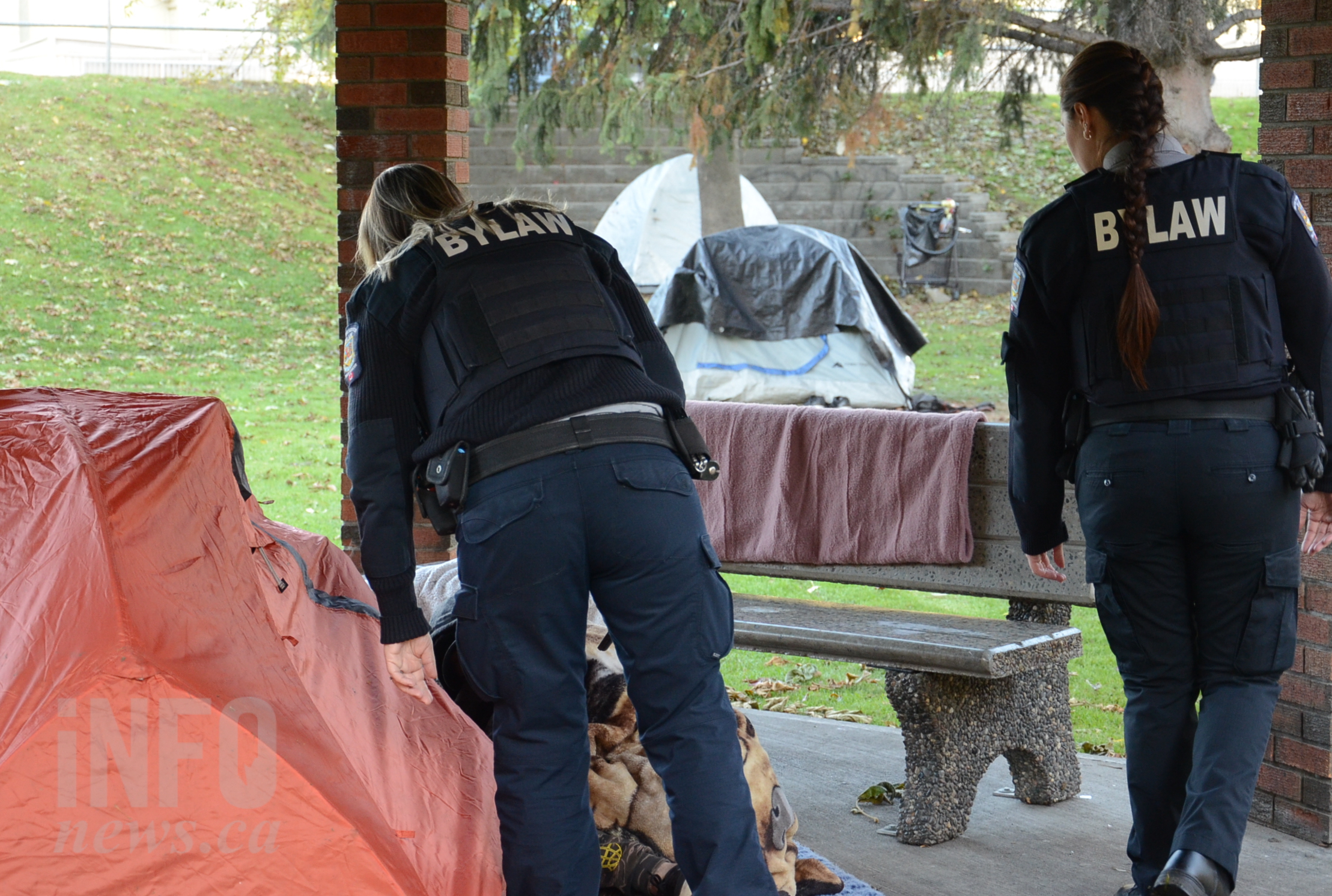How Kamloops is trying to deal with a wide range of social issues facing all cities in B.C.
by Rob Munro
Switching the bylaw officer title in Kamloops is more than a cosmetic change of names for Tammy Blundell, the city’s community services manager.
It’s about finding better ways to deal with things like homelessness, nuisance properties, marijuana grow ops and the like.
Renaming bylaw officers as community service officers is just the first step in changes that will likely take a couple of years to fully implement.
READ MORE: Kamloops doesn't have bylaw officers anymore — they're 'community service officers'
“Kamloops is no different than any other community,” Blundell told iNFOnews.ca. “We all have our social issues and the vulnerable population that we’ve been dealing with, around mental health and so on and so forth. That’s one of the drivers.”
Bylaw officers are out at every homeless camp, not only breaking them up but also helping the campers find their way back off the street.
She cited a recent example of a man camped on private property by the South Thompson River. He was trying to get access to his children after a bitter divorce.
The bylaw officer was able to take a government worker out to the man’s campsite. By the next day a deposit was made so the man could rent an apartment and start getting back on his feet.
There are 17 full-time equivalent bylaw officer positions in the city. They will be offered a chance to step into the new roles and, Blundell hopes, by January they can start their training in about 10 modules. Those who don’t want to take on the new roles will be offered other city jobs.
They will not be trained as social workers. That work is already being done by other agencies. But they will learn about things like conflict resolution mediation, mental health, first aid and cultural awareness so they can help those who “fall through the cracks” of what other agencies provide.
But the changes go far beyond dealing with the homeless. It’s also about developing new ways of communicating with residents who call in. That’s a second driver behind the changes.
“Our community and residents want more,” Blundell said. “When they call bylaws, they don’t want to hear, 'we don’t do that, we can’t do that, we don’t have the authority.'
“It’s not even around the authority. They just want, sometimes, to be heard. What it comes down to is, making that phone call and we attend and having that fulsome conversation with the resident to say, hey, what options to I have available to me?”
That can range from things like rat infestations to nuisance properties to mental health concerns.
Not only is it going to take time to identify those who will become the new community services officers, but the group will also include those currently working as guards at the RCMP detachment. It can take six to eight months to get security clearances approved for those officers who have not been doing those jobs.
Ultimately, Blundell sees a three-tier feeder system.
There will be junior community services officers who will take on some of the tasks currently being done by bylaws such as traffic control at the railway crossing when there are events at the Sandman Centre.
Ideally, with training and experience, they will move into the full officer positions.
In the next year or two it’s expected that the province will approve a new auxiliary police program. Blundell can see her community service officers being trained further in order to take on that role.
READ MORE: New auxiliary police system will likely be flagged as volunteers in B.C.
While it will take time to fully implement the changes it will also likely take money. Blundell expects city council to be asked to pay for more of these officers in the coming years.
Whether getting city employees to deal with more social issues means taking over work that is normally done by the province is something she would not comment on.